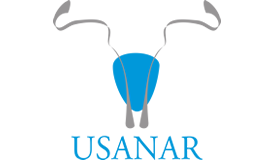Stress, unhealthy eating habits, and sedentary lifestyles have become all too common in today’s fast-paced world. As we strive for success and accomplishment, it is easy to overlook the importance of holistic well-being in our pursuit of education. The impact of our habits reaches beyond our physical health; it influences our mental and emotional well-being, ultimately affecting our ability to thrive academically. In this article, we delve into the importance of nurturing holistic health and wellness in education, exploring the various aspects of nutrition and fitness that can empower us to unlock our true potential.
A Balanced Mind, A Balanced Life
In recent years, a paradigm shift has occurred, acknowledging that education is not solely confined to traditional classroom learning. The holistic development of an individual encompasses physical, mental, and emotional aspects. Thus, it is imperative to foster an environment that promotes mindfulness and mental well-being alongside academic achievement. Incorporating meditation, mindfulness practices, and stress-management techniques into the curriculum can help students develop emotional intelligence, resilience, and compassion. By nurturing a balanced mind, we equip students with the tools to cope with the challenges they will inevitably face in their educational journey and beyond.
Nourishing the Body and Mind
While mental and emotional well-being are paramount, it is equally important to pay attention to the physical aspect of health. The link between nutrition and academic performance is well-documented, with studies showing that a balanced diet can enhance cognitive function and promote better focus and concentration. By offering nutritious meals and educating students about the importance of a healthy diet, we can fuel their bodies and minds, optimizing learning outcomes. Moreover, incorporating physical activity into the curriculum not only counteracts sedentary behaviors but also supports cognitive development. Regular exercise helps improve memory retention, attention span, and overall cognitive abilities, creating an environment conducive to effective learning.
Integrating Technology for Immersive Learning
In the digital age, technology has revolutionized the way we connect, communicate, and learn. Its integration into education has the potential to enhance experiential learning and enable students to explore fields beyond the confines of textbooks. Virtual reality simulations, interactive educational apps, and online collaboration platforms empower students to engage actively in their learning process, making education more accessible and enjoyable. However, it is crucial to strike a balance in the use of technology, ensuring that it complements traditional teaching methods and does not replace the invaluable human connection within the educational ecosystem.
Embracing a Future of Holistic Wellness
As our society evolves, so too does our understanding of the importance of holistic wellness in education. The future of wellness trends in education lies in adaptability, inclusivity, and a commitment to unleashing the potential within each individual. Schools must embrace diverse learning styles, catering to the unique needs of every student. Implementing mindfulness practices, promoting nutritious eating habits, incorporating physical activity, and leveraging technology are all vital components of a holistic educational experience. By nurturing the holistic well-being of students, we ignite their passion for learning, instill lifelong healthy habits, and prepare them to become well-rounded individuals equipped to face the challenges of the future with resilience and grace.
In conclusion, a holistic approach to education, encompassing physical, mental, and emotional well-being, is essential for unlocking the true potential of students. By fostering a balanced mind, nourishing the body and mind, and leveraging technology for immersive learning, we pave the way for a future where education is not solely about knowledge acquisition but about nurturing well-rounded individuals. Let us embark on this journey together, valuing holistic wellness as the cornerstone of education, and empowering students to become the best versions of themselves.

